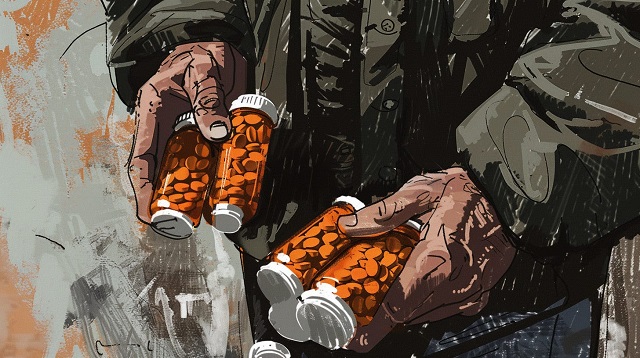Opinion
CRAZY CAM: THE AIRPORT
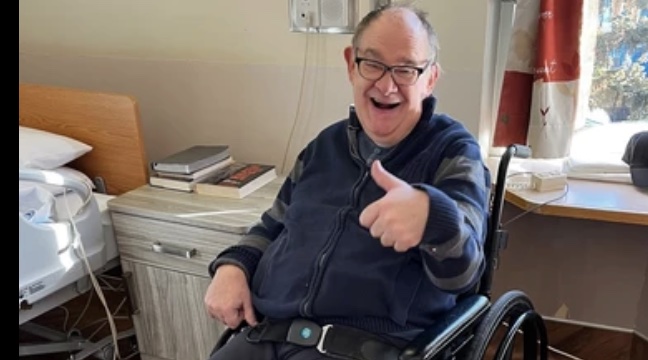
MAiD
Even Canadian leftists are starting to recognize the ‘dystopian’ nature of MAiD

From LifeSiteNews
Euthanasia based on poverty or disability is rarely based on personal choice and autonomy, it is horrifying, it is profane, it is the outcome of a failed social welfare system, and it is indefensible.
David Moscrop wrote an excellent article that was published by Jacobin Magazine on May 2, 2024. Jacobin is an ideologically left magazine, which is concerned about Canada killing people with disabilities and the poor by euthanasia, known as MAiD (Medical Assistance in Dying).
The article begins with this quote:
Canada boasts one of the world’s highest assisted-death rates, supposedly enabling the terminally ill to die with dignity. However, this suicide program increasingly resembles a dystopian replacement for care services, exchanging social welfare for euthanasia.
Moscrop tells the story of Normand Meunier, the quadriplegic man in Québec who died by euthanasia after suffering from horrific neglect. Moscrop writes:
For want of a mattress, a man is dead. That’s the story, in sum, of a quadriplegic man who chose to end his life in January through medically assisted death. Normand Meunier’s story, as reported by the CBC, began with a visit to a Quebec hospital due to a respiratory virus. Meunier subsequently developed a painful bedsore after being left without access to a mattress to accommodate his needs. Thereafter, he applied to Canada’s Medical Assistance in Dying (MAiD) program.
As Rachel Watts writes in her report, Meunier spent ninety-five hours on a stretcher in the emergency room – just hours short of four days. The bedsore he developed ‘eventually worsened to the point where bone and muscle were exposed and visible – making his recovery and prognosis bleak.’ The man who ‘didn’t want to be a burden’ chose to die at home. An internal investigation into the matter is underway.
I find it interesting that the article states that Meunier chose to die by euthanasia when in fact he was put into an untenable situation. Moscrop then reinforces the concerns of the disability community:
Disability and other advocates have been warning us for years that MAiD puts people at risk. They warned that the risk of people choosing death – because it’s easier than fighting to survive in a system that impoverishes people, and disproportionately does so to those who are disabled – is real. Underinvestment in medical care will push people up to and beyond the brink, which means some will choose to die instead of ‘burden’ their loved ones or society at large. They were right.
Moscrop comments on how euthanasia is the outcome of a failed social welfare state:
A libertarian ethos partially underwrote the fact that not many people blinked when MAiD was initially rolled out. Taking a more expansive view of rights, many of those not swayed by rote libertarianism were convinced that concerns over bodily autonomy and compassion were reason enough to adopt MAiD. However, in the absence of a robust welfare state, and in the face of structural poverty and discrimination, particularly toward disabled people, there is no world in which the MAiD program can be understood to be ‘progressive.’
Indeed, last year, Jeremy Appel argued that MAiD was ‘beginning to look like a dystopian end run around the cost of providing social welfare.’ Initially supportive, he changed his mind on MAiD as he considered that the decisions people make are not strictly speaking individual but are instead collectively shaped and sometimes ‘the product of social circumstances, which are outside of their control.’ When we don’t care for one another, what do we end up with?
‘I’ve come to realize,’ wrote Appel, ‘that euthanasia in Canada represents the cynical endgame of social provisioning with the brutal logic of late-stage capitalism – we’ll starve you of the funding you need to live a dignified life [. . .] and if you don’t like it, why don’t you just kill yourself?’
READ: Young, healthy women being euthanized in the Netherlands should be a warning for Canada
Moscrop then comments on that euthanasia for psychiatric reasons has been delayed in Canada based on the lack of mental health care. He refers to the reality as grotesque and writes that this is the stuff of nightmarish science fiction. Moscrop comments on the broken social welfare system in Canada.
In Canada’s most populous province, Ontario, a recipient of disability support receives about $1,300 a month – a pittance they’re meant to stretch to cover food, shelter, and other basic needs. Ontario Works – the province’s welfare program – pays a current maximum of $733 a month. Meanwhile, rental costs for a one bedroom apartment routinely push toward an average of $2,000 a month in many cities. In April, in Toronto, a one bedroom apartment averaged almost $2,500 a month.
Moscrop challenges a statement by euthanasia activists James Downer and Susan MacDonald who stated:
Despite fears that availability of MAiD for people with terminal illness would lead to requests for MAiD driven by socioeconomic deprivation or poor service availability (e.g., palliative care), available evidence consistently indicates that MAiD is most commonly received by people of high socioeconomic status and lower support needs, and those with high involvement of palliative care.
Moscrop replies:
By their own admission, the data on this matter is imperfect. But even if it were, the fact that ‘most’ patients who choose MAiD are better off socioeconomically is beside the point. Some are not – and those ‘some’ are important. That includes a man living with Amyotrophic Lateral Sclerosis who, in 2019, chose medically assisted death because he couldn’t find adequate medical care that would also allow him to be with his son. It also includes a man whose application listed only ‘hearing loss,’ and whose brother says he was ‘basically put to death.’ This story came a year after experts raised the concern that the country’s MAiD regime was in violation of the Universal Declaration of Human Rights.
In 2022, Global News said the quiet part out loud: poverty is driving disabled Canadians to consider MAiD. Those ‘some’ who are driven to assisted death because of poverty or an inability to access adequate care deserve to live with dignity and with the resources they need to live as they wish. They should never, ever feel the pressure to choose to die because our social welfare institutions are starved and our health care system has been vandalized through years of austerity and poor management.
Moscrop then states that Canada has the resources to prevent endemic poverty and provide adequate care, that poor people being euthanized by the state is profane.
Moscrop then refers to a recent article by professor Trudo Lemmens who is a critic of Canada’s euthanasia law.
In a February piece for the Globe and Mail, University of Toronto law professor Trudo Lemmens wrote, ‘The results of our MAiD regime’s promotion of access to death as a benefit, and the trivialization of death as a harm to be protected against, are increasingly clear.’ In critiquing MAiD’s second track, which allows physician-assisted death for those who do not face ‘a reasonably foreseeable death,’ Lemmens points out that within two years of its adoption, ‘“track two”’ MAiD providers had ended already the lives of close to seven hundred disabled people, most of whom likely had years of life left.’
In raising concerns about expanding MAiD to cover mental illness, Lemmens added that ‘there are growing concerns that inadequate social and mental health care, and a failure to provide housing supports, push people to request MAiD,’ noting that ‘[a]dding mental illness as a basis for MAiD will only increase the number of people exposed to higher risks of premature death.’
Moscrop continues by referring to a commentary from disability leader Gabrielle Peters.
In 2021, Gabrielle Peters warned in Maclean’s that extending MAiD to cover those who weren’t facing an immediately foreseeable death was ‘dangerous, unsettling and deeply flawed.’ She traced the various ways in which a broader MAiD law could lead to people choosing to die in the face of austerity, adding an intersectional lens that is often missing from our discussions and debates over the issue.
She warned that we were failing to consider ‘how poverty and racism intersect with disability to create greater risk of harm, more institutional bias and barriers, additional layers of othering and dehumanization, and fewer resources for addressing any of these.’ And now here we are. We should have listened more carefully.
Moscrop ends his article by suggesting that euthanasia may be OK based on personal choice but it is indefensible when it is based on poverty.
While MAiD may be defensible as a means for individuals to exercise personal choice in how they live and how they die when facing illness and pain, it is plainly indefensible when state-induced austerity and mismanagement leads to people choosing to end their lives that have been made unnecessarily miserable. In short, we are killing people for being poor and disabled, which is horrifying.
It thus falls to proponents of MAiD to show how such deaths can be avoided, just as it falls to policymakers to build or rebuild institutions that ensure no one ever opts to end their life for lack of resources or support, which we could provide in abundance if we choose to.
I agree with most of Moscrop’s comments but I disagree with his statement that euthanasia is possibly defensible as a means of individuals exercising personal choice. Even though people with disabilities experience social devaluation in Canada, they may be still exercising personal choice when they ask to be killed.
The problem with modern writers is that they miss the fact that euthanasia is about killing people. Even if Canada had a greater level of equality, there would be people who ask to be killed based on their poverty or their concerns about homelessness.
The real concern is that Canada has given medical professionals the right in law to kill their patients. This is about people killing people.
Nonetheless Moscrop is right that euthanasia based on poverty or disability is rarely based on personal choice and autonomy, it is horrifying, it is profane, it is the outcome of a failed social welfare system, and it is indefensible.
Reprinted with permission from the Euthanasia Prevention Coalition.
Fraser Institute
Policymakers in Ottawa and Edmonton maintain broken health-care system

From the Fraser Institute
What’s preventing these reforms? In a word, Ottawa.
To say Albertans, and indeed all Canadians, are getting poor value for their health-care dollars is a gross understatement. In reality, Canada remains among the highest spenders on health care in the developed world, in exchange for one of the least accessible universal health-care systems. And while Canadians are increasingly open to meaningful reform, policymakers largely cling to their stale approach of more money, platitudes and little actual change.
In 2021 (the latest year of available data), among high-income universal health-care countries, Canada spent the highest share of its economy on health care (after adjusting for age differences between countries). For that world-class level of spending, Canada ranked 28th in the availability of physicians, 23rd in hospital beds, 25th in MRI scanners and 26th in CT scanners. And we ranked dead last on wait times for specialist care and non-emergency surgeries.
This abysmal performance has been consistent since at least the early 2000s with Canada regularly posting top-ranked spending alongside bottom-ranked performance in access to health-care.
On a provincial basis, Albertans are no better off. Alberta’s health-care system ranks as one of the most expensive in Canada on a per-person basis (after adjusting for population age and sex) while wait times in Alberta were 21 per cent longer than the national average in 2023.
And what are governments doing about our failing health-care system? Not much it seems, other than yet another multi-billion-dollar federal spending commitment (from the Trudeau government) and some bureaucratic shuffling (by the Smith government) paired with grandiose statements of how this will finally solve the health-care crisis.
But people aren’t buying it anymore. Canadians increasingly understand that more money for an already expensive and failing system is not the answer, and are increasingly open to reforms based on higher-performing universal health-care countries where the public system relies more on private firms and entrepreneurs to deliver publicly-funded services. Indeed, according to one recent poll, more than six in 10 Canadians agree that Canada should emulate other countries that allow private management of public hospitals, and more than half of those polled would like increased access to care provided by entrepreneurs.
What’s preventing these reforms?
In a word, Ottawa. The large and expanding federal cash transfers so often applauded by premiers actually prevent provinces from innovating and experimenting with more successful health-care policies. Why? Because to receive federal transfers, provinces must abide by the terms and conditions of the Canada Health Act (CHA), which prescribes often vaguely defined federal preferences for health policy and explicitly disallows certain reforms such as cost-sharing (where patients pay fees for some services, with protections for low-income people).
That threat of financial penalty discourages the provinces from following the examples of countries that provide more timely universal access to quality care such as Germany, Switzerland, Australia and the Netherlands. These countries follow the same blueprint, which includes patient cost-sharing for physician and hospital services (again, with protections for vulnerable populations including low-income individuals), private competition in the delivery of universally accessible services with money following patients to hospitals and surgical clinics, and allowing private purchases of care. Yet if Alberta adopted this blueprint, which has served patients in these other countries so well, it would risk losing billions in health-care transfers from Ottawa.
Finally, provinces have seemingly forgot the lesson from Saskatchewan’s surgical initiative, which ran between 2010 and 2014. That initiative, which included contracting out publicly financed surgeries to private clinics, reduced wait lists in Saskatchewan from among the highest in the country to among the shortest. And when the initiative ended, wait times began to grow again.
The simple reality of health care in every province including Alberta is that the government system is failing despite a world-class price tag. The solutions to this problem are known and increasingly desired by Canadians. Ottawa just needs to get out of the way and allow the provinces to genuinely reform the way we finance and deliver universal health care.
Author:
-

 COVID-1919 hours ago
COVID-1919 hours agoAstraZeneca withdraws COVID vaccines worldwide amid lawsuits alleging severe harm
-
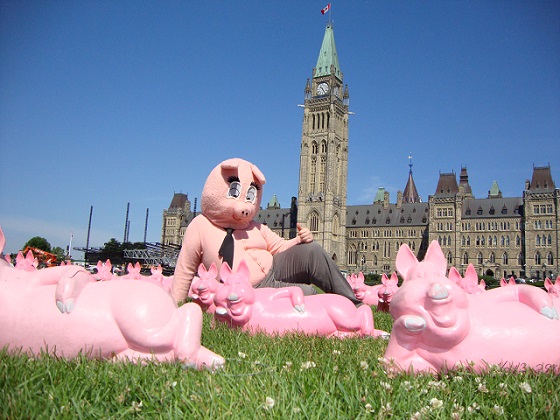
 National1 day ago
National1 day agoTaxpayers Federation presents Teddy Waste Awards for worst government waste
-
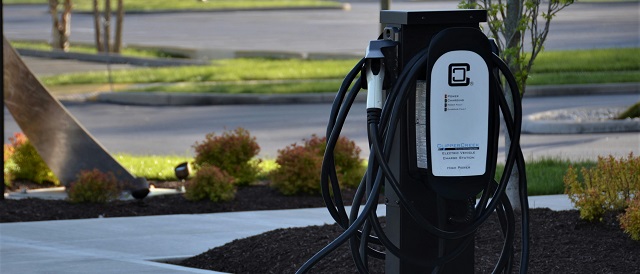
 Automotive1 day ago
Automotive1 day agoNew Analysis Shows Just How Bad Electric Trucks Are For Business
-

 Opinion2 days ago
Opinion2 days agoBoy Scouts of America changes name to ‘Scouting America’ to be ‘more inclusive’
-

 Censorship Industrial Complex16 hours ago
Censorship Industrial Complex16 hours agoInternet censorship laws lead a majority of Canadians to believe free speech is threatened: poll
-
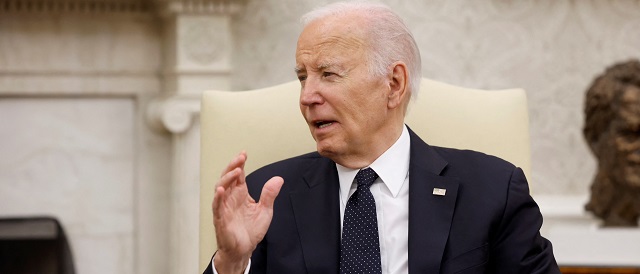
 Censorship Industrial Complex1 day ago
Censorship Industrial Complex1 day agoBiden Agencies Have Resumed Censorship Collaboration With Big Tech, Dem Senate Intel Chair Says
-

 COVID-191 day ago
COVID-191 day agoElon Musk’s X will help fund COVID shot critic’s ongoing legal battle against Canadian university
-

 International1 day ago
International1 day agoWhy Biden’s Gaza refugee plan is a hard hell no





